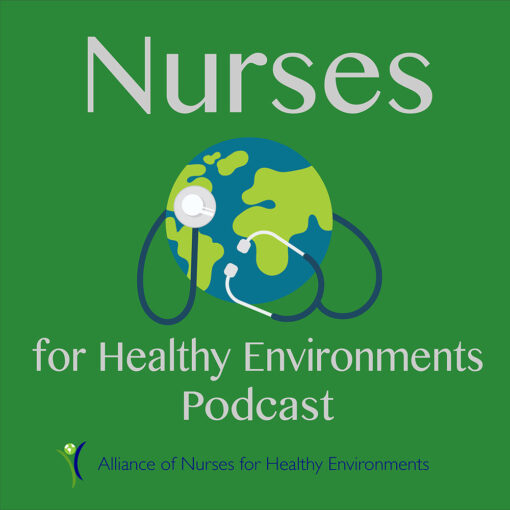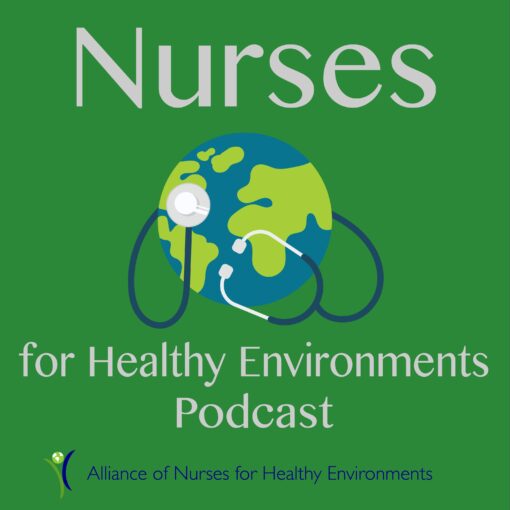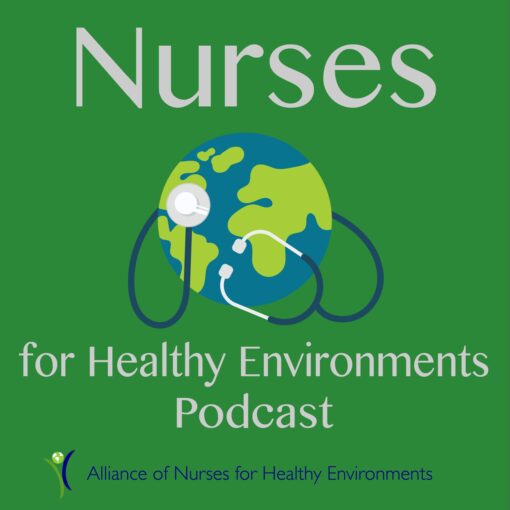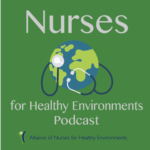
Jacqueline Fawcett, RN; PhD; ScD (hon); FAAN; ANEF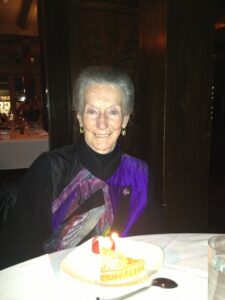
Dr. Fawcett received her Bachelor of Science degree from Boston University in 1964, her Master of Arts degree in Parent Child Nursing with a minor in Nursing Education from New York University in 1970, and her Ph.D. in Nursing, also from New York University, in 1976. Dr. Fawcett has been a nurse educator for almost 50 years; currently, she is a Professor in the Department of Nursing, College of Nursing and Health Sciences, University of Massachusetts Boston. Previously, she held faculty positions at the University of Connecticut and the University of Pennsylvania.
For more than 45 years, Dr. Fawcett’s program of research has focused on Roy Adaptation Model-based studies of adaptation to life events. Her earlier program of research, starting with her doctoral dissertation, was based on Rogers’ Science of Unitary Human Beings. Dr. Fawcett and colleagues have received funding from national and local sources and have published reports of their research in numerous journal articles and book chapters. This program of research has provided the evidence for parental leave health policies.
Dr. Fawcett is perhaps best known for her meta-theoretical work, which focuses on the nature and structure of knowledge in nursology. Dr. Fawcett’s meta-theoretical work is published in many journal articles and book chapters, as well as in her several books. Her most recent books are Applying Conceptual Models of Nursing: Research, Quality Improvement, and Practice (2017), and co-edited with Sarah Beckman, The Neuman Systems Model: Celebrating Academic-Practice Partnerships (2017), as well as Contemporary Nursing Knowledge: Analysis and Evaluation of Nursing Models and Theories, co-authored with Susan DeSanto-Madeya (2013).
Dr. Fawcett is a co-founder of nursology.net, which went live in September 2018. The website is a repository for our discipline’s knowledge in the form of summaries and exemplars of philosophies, conceptual models, and theories. nursology.net posts at least one nursology theory-based blog each week.
Dr. Fawcett been a member of Nursing Theory Guided Practice Expert Panel of the American Academy of Nursing since its inception 50 years ago and has participated in many of its activities, most recently contributing to a new mission statement and papers and a presentation about conceptual model and theory-guided health policies.
Dr. Fawcett has been a member of the Society of Rogerian Scholars for many years. She served as Treasurer for 18 years and currently is a member of the Board of Directors. She has published several papers in Visions: The Journal of Rogerian Nursing Science as author or co-author (co-author most frequently with Dr. Martha Raile Alligood).
Dr. Fawcett is a member of the Executive Board, Nursing Archives Associates, Boston University Howard Gotlieb Archival Research Center. She also is a member of the Dean’s Advisory Board of the Boston University School of Public Health and a past member of the Leadership Advisory Board, Boston University School of Public Health, School Health Institute for Education and Leadership Development (SHIELD). In addition, she is a member of the University of Connecticut School of Fine Arts Dean’s Advisory Board, and a member of the Board of Directors of the American Nurses Association-Maine.
About the EHRI-NCS (Environmental Health Research Institute for Nurse and Clinician Scientists) Series
The NIEHS funded EHRI-NCS grant (PI Jessica Castner, PhD, RN, FAAN) offers research, educational, and career-building opportunities for nurse environmental health scientists. In this series, two participants, Dr. Heide Cygan and Dr. Heidi Honegger Rogers interview other fellows about their studies and experiences. Join us for a fascinating journey of ideas!
Co-hosts of the EHRI-CNS Series:
Heidi Honegger Rogers, DNP, FNP C, APHN BC, FNAP
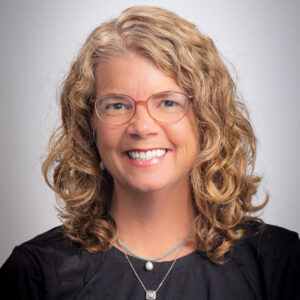 Dr. Honegger Rogers is a clinician educator – associate professor at the University of New Mexico (UNM) College of Nursing. She is the Director of Interprofessional Education for the UNM Health Sciences Center. Her advocacy and scholarship centers in climate change and health, equity and justice, nature connection, wellbeing, and planetary health. She leads the Planetary Health Task Force for the American Holistic Nurses Association, and she works with Nurses for Planetary Health, Alliance of Nurses for Healthy Environments, the Global Consortium for Climate Change and Health Education Nurses Working Group, and the Planetary Health Alliance. She is a facilitator with the Work That Reconnects and a certified Nature and Forest Therapy Guide. She is dedicated to bringing a Planetary Health Lens into our work as nurses and health professionals. Pronoun preferences: she/her/hers.
Dr. Honegger Rogers is a clinician educator – associate professor at the University of New Mexico (UNM) College of Nursing. She is the Director of Interprofessional Education for the UNM Health Sciences Center. Her advocacy and scholarship centers in climate change and health, equity and justice, nature connection, wellbeing, and planetary health. She leads the Planetary Health Task Force for the American Holistic Nurses Association, and she works with Nurses for Planetary Health, Alliance of Nurses for Healthy Environments, the Global Consortium for Climate Change and Health Education Nurses Working Group, and the Planetary Health Alliance. She is a facilitator with the Work That Reconnects and a certified Nature and Forest Therapy Guide. She is dedicated to bringing a Planetary Health Lens into our work as nurses and health professionals. Pronoun preferences: she/her/hers.
Daniel Smith, PhD, AGPCNP-BC, CNE, FAAN (he/they) 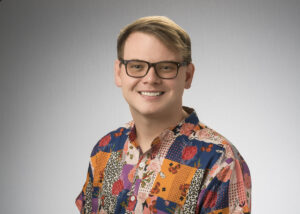
Smith’s research program examines the effects of climate change on health outcomes of marginalized populations. He is particularly interested in identifying ways to enhance climate change resilience, developing adaptation strategies, and investigating the impact of environmental determinants of health on vulnerable populations.
Smith is an expert in community-based participatory research with Spanish-speaking populations. He is the immediate past co-chair of the Global Nurses Climate Change Committee at the Alliance of Nurses for Healthy Environments and a member of the National Institute of Nursing Research’s Climate Change and Health working group, where he helps to determine the institute’s priorities related to climate change and health.
Smith co-authored ANA’s 2023 position statement “Nurses’ Role in Addressing Global Climate Change, Climate Justice, and Health.” Since 2023, he is also a member of the National Institute of Nursing Research’s climate change and health working group to define nursing research priorities related to climate change. In his nursing practice, he treats those most impacted by climate change, including migrant farmworkers in Pennsylvania and Georgia, the unhoused in Philadelphia, and Nicaraguan sugarcane cutters.
Smith’s consultancy work as an occupational health nurse practitioner and scientist has led to the development of worksite-based research and practice protocols that protect workers from heat-related illness when working in high-heat conditions outside. Additionally, he created culturally sensitive health education materials for farmworkers, now utilized in clinics across the East Coast.
About the Nurses for Healthy Environments Podcast
Since 2017, Beth and other hosts have interviewed dozens of nurses across the globe, all of whom are working at the intersection of health and environment. The goals of the podcast are to spread the word about the fabulous work of the Alliance of Nurses for Healthy Environments – so we’re glad you found us! And, to highlight and share the amazing and leading work nurses around the world are doing to help protect our natural world in order to support health and healing.
Again and again, nurses are spearheading social change, climate action, environmental justice, and improving health for vulnerable populations, while using their valuable clinical skills, teaching, and caring. Nurses’ work can seem overlooked or taken for granted, and we are here to tell their important stories. We hope you enjoy meeting the nurses in the Nurses for Healthy Environments podcast!
Beth Schenk, Nurses for Healthy Environments Podcast Host
Elizabeth Schenk, PhD, RN, FAAN, is a leader of environmental stewardship in healthcare, where she has been working to reduce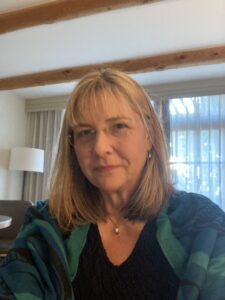 pollution from healthcare for 3 decades. Schenk is a former board member of the Alliance of Nurses for Healthy Environments, and serves on the boards of Montana Health Professionals for a Healthy Climate and Climate Smart Missoula.
pollution from healthcare for 3 decades. Schenk is a former board member of the Alliance of Nurses for Healthy Environments, and serves on the boards of Montana Health Professionals for a Healthy Climate and Climate Smart Missoula.

